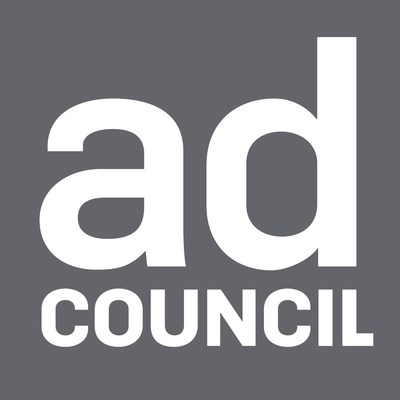The Ad Council, CDC, National Council for Mental Wellbeing and Shatterproof Launch Joint Effort to Inspire Millions Living with or At Risk for Substance Use Disorders to Begin their Recovery Journeys
- None.
- None.
Insights
Analyzing...
New Campaign Showcases the Role of Hope in Individuals Who Have Gone Through their Own Paths to Recovery and Highlights Resources and Access to Critical Harm Reduction and Treatment Support Options
According to recent SAMHSA data from the National Survey on Drug Use and Health, 46.3 million people ages 12 and older in the
Sixty-six percent of American adults have a personal or familial experience with a SUD, according to KFF. While SUDs can impact anyone and the rates of substance use in the Black and Hispanic/Latinx communities are similar to the general population, these communities have experienced sharp increases in overdose rates from 2019 to 2020, according to recent data from the CDC –
Informed by foundational research from the Ad Council Research Institute and experts at the CDC, National Council for Mental Wellbeing and Shatterproof, the new campaign developed pro bono by Accenture Song, the tech-powered creative group of Accenture (NYSE: ACN), leans on the insight that people with SUDs found immense value in hearing from those who have been through similar experiences. The work also leverages recent studies showing that hope is more than just a human emotion, but also a mindset that can be learned and strengthened with practice. Hope can also serve as a strong predictor of outcomes focused on well-being and quality of life.
Highlighting real stories of individuals who have gone through their own recovery journeys, the new "Start With Hope" campaign features the personal experiences of Ale, Ariel and Joseph, increasing awareness around harm reduction and showing that resources are available for the many paths to recovery. This new campaign emphasizes that recovery is not a one-size-fits-all journey, and highlights that working toward wellbeing often begins with harm reduction strategies like carrying naloxone, using less or engaging in evidence-based treatment options.
WATCH THE PSA: https://youtu.be/U9Z3vgffpvY
"The Ad Council has undertaken a holistic approach to addressing the overdose crisis in
"The overdose crisis touches all of our families, neighborhoods and communities, but disproportionately impacts certain populations," said Grant T. Baldwin, director of CDC's Division of Overdose Prevention. "Ale, Ariel and Joseph have shared incredible stories of hope, that recovery is possible and looks different for everyone. By sharing their stories, we hope this campaign will light the path to recovery for others."
"Treatment matters and recovery happens. However, treatment remains elusive for too many people, especially those in marginalized communities," said Chuck Ingoglia, president and CEO at the National Council for Mental Wellbeing. "The 2021 National Survey on Drug Use and Health found that people who received mental health or substance use treatment and care recovered at higher rates than those who didn't, while people who needed treatment but did not receive it had a lower rate of recovery. So, we must do more to help people get the treatment and care they need, and the 'Start With Hope' campaign will achieve that by connecting people to the resources they need. Treatment matters and recovery happens, but it starts with hope."
"With drug overdose deaths at an all-time high, specifically impacting racial and ethnic minorities, Shatterproof and its partners are positioned to develop and disseminate research-based messaging to support those with substance use disorders, particularly people most impacted by structural inequities," said Gary Mendell, founder and CEO of Shatterproof. "Together, we will help people with substance use disorders from underserved communities find hope and achieve better healthcare and treatment outcomes for themselves and their loved ones."
Developed in both English and Spanish, all PSA assets drive audiences to campaign websites StartWithHope.com and ComienzaConEsperanza.com. The websites equip audiences to assess personal needs, understand treatment options and harm reduction practices and find culturally-responsive support and treatment options that will work best for them.
"You can see the powerful role hope can play at every stage of a substance use disorder recovery journey. It's what inspires you to start, it keeps you moving through the ups and downs, and of course, it's something you take with you as you move toward a brighter life journey," said Maria Devereux, executive creative director for Accenture Song. "Realizing hope is something we can learn, practice and hugely benefit from in the fight against substance use disorders is the single most important message we want people to take away from this campaign."
The campaign PSAs will appear nationwide across broadcast, digital, social, out-of-home and print formats in donated media time and space.
For more information and resources, visit StartWithHope.com and ComienzaConEsperanza.com.
The Ad Council
The Ad Council convenes creative storytellers to educate, unite and uplift audiences by opening hearts, inspiring action and accelerating change around the most pressing issues in America. Since the non-profit's founding, the organization and its partners in advertising, media, marketing and tech have been behind some of the country's most iconic social impact campaigns – Smokey Bear, A Mind Is a Terrible Thing to Waste, Love Has No Labels, Tear the Paper Ceiling and many more. With a current focus on mental health, gun safety, the opioid epidemic, skill-based hiring and other critical issues, the Ad Council's national campaigns encompass advertising and media content, ground game and community efforts, trusted messenger and influencer engagement, and employer programs, among other innovative strategies to move the needle on the most important issues of the day.
To learn more or get involved, visit AdCouncil.org, join the Ad Council's communities on Facebook, Instagram, LinkedIn and X, and view campaign creative on YouTube.
Centers for Disease Control and Prevention (CDC)
CDC works 24/7 protecting America's health, safety and security. Whether diseases start at home or abroad, are curable or preventable, chronic or acute, or from human activity or deliberate attack, CDC responds to America's most pressing health threats. CDC is headquartered in
This project is supported by the Centers for Disease Control and Prevention (CDC) of the
National Council for Mental Wellbeing
Founded in 1969, the National Council for Mental Wellbeing is a membership organization that drives policy and social change on behalf of over 3,300 mental health and substance use treatment organizations and the more than 10 million children, adults and families they serve. We advocate for policies to ensure equitable access to high-quality services. We build the capacity of mental health and substance use treatment organizations. And we promote greater understanding of mental wellbeing as a core component of comprehensive health and health care. Through our Mental Health First Aid (MHFA) program, we have trained more than 3 million people in the
Shatterproof
Shatterproof is a national nonprofit organization dedicated to reversing the addiction crisis in the
![]() View original content to download multimedia:https://www.prnewswire.com/news-releases/the-ad-council-cdc-national-council-for-mental-wellbeing-and-shatterproof-launch-joint-effort-to-inspire-millions-living-with-or-at-risk-for-substance-use-disorders-to-begin-their-recovery-journeys-301973589.html
View original content to download multimedia:https://www.prnewswire.com/news-releases/the-ad-council-cdc-national-council-for-mental-wellbeing-and-shatterproof-launch-joint-effort-to-inspire-millions-living-with-or-at-risk-for-substance-use-disorders-to-begin-their-recovery-journeys-301973589.html
SOURCE The Ad Council








